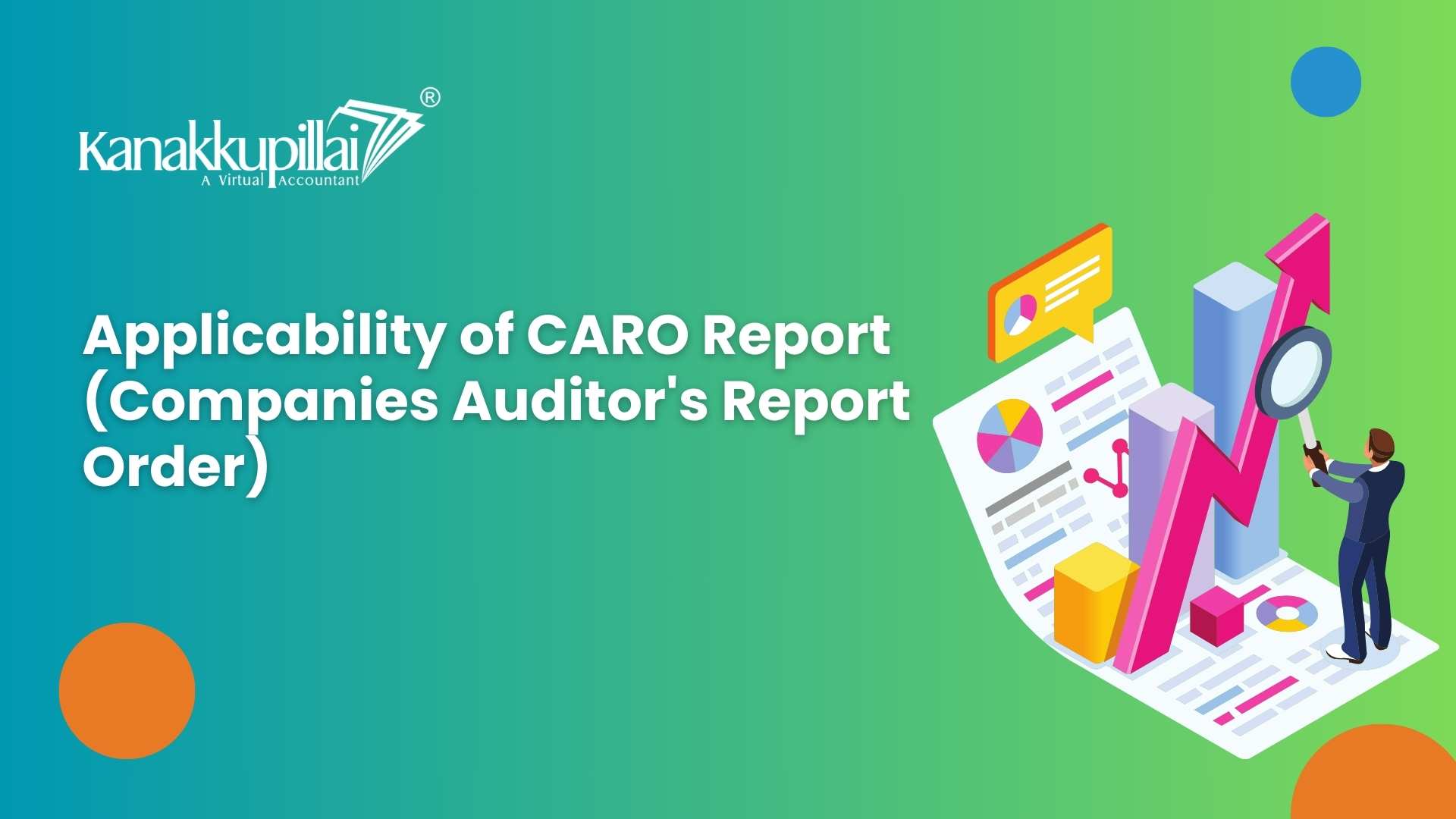![]()
The Companies (Auditor’s Report) Order, also known as CARO, has a fundamental impact on creating straightforwardness and obligation in monetary disclosure for associations in India. The applicability of the CARO report and its configuration are significant contemplations for businesses and their auditors. Section 143(11) of the Companies Act of 2013 enables the central government to tell specific matters for consideration in an auditor’s report for a particular class of companies.
Understanding the Applicability of CARO Report
The CARO report applies to specific classes of organizations as determined by the Ministry of Corporate Affairs (MCA) in counsel with the Institute of Chartered Accountants of India (ICAI). The applicability models differ yearly, and organizations should remain refreshed with the most recent provisions. For the financial year, the applicability of CARO is still up in the air al, leading to the applicable warnings and amendments given by the MCA.
Importance of CARO Report
The CARO report is fundamental for partners, including financial backers, monetary patrons, credit subject matter experts, and regulatory-trained professionals, to study an association’s money-related prosperity and consistency. It works on the faithful nature of spending plan reports, perceives expected risks and abnormalities, and helps prevent deceitful activities. The report gives essential experiences into an organization’s tasks, monetary execution, and adherence to legal prerequisites, adding to general corporate administration and straightforwardness.
Key Aspects of CARO Report Format
The CARO report design gives auditors a normalized structure to cover different parts of a company’s tasks and monetary position. The configuration guarantees that fundamental data is caught and consistently conveyed to stakeholders. While the arrangement might develop in time, it covers regions like fixed assets, stock, credits and advances, related party exchanges, inward controls, consistent regulations and guidelines, and other relevant disclosures.
The CARO report format typically requires auditors to provide specific details and explanations for each aspect covered. The data must be prepared according to the auditing standards of the ICAI and any additional guidelines provided by the MCA (Ministry Of Corporate Affairs).
Sub Section 11 Of Section 143 Of the Companies Act of 2013
Applicability of the CARO report under section 143 (11). Section 143 of the Companies Act 2013, in its sub-section 11, states that the Central Government, in consultation with the NFRA, can make a general or special order in respect of such specific class or description of companies as specified in the order that the auditor’s report includes any statement on the matters as specified therein.
Applicability Of the CARO Report: Matters
Applicability of the CARO report is on the following matters:
- Details of tangible and intangible assets.
- Details of investment, guarantees, security advances or loans granted.
- Details of inventory and working capital.
- Compliance for deposits accepted.
- Compliance related to the loan to directors.
- Funds raised and utilization.
- Compliance with transactions with related parties.
- Compliance by Nidhi Company.
- Unrecorded income.
- Default in re-payment of borrowings.
- Maintenance of cost record.
- Deposit of statutory liabilities.
- Internal Audit System.
- No-cash dealings with directors.
- Funds raised by a company by way of an Initial Public Officer
- Registration under Section 45 IA of the RBI Act.
- Cash losses
- The company does any fraud.
- Transfer to fund specified under Schedule VII of the Companies Act, 2013.
- Resignation of statutory auditors.
- Material uncertainty in meeting liabilities
- Adverse auditor reports in other group companies.
Auditor’s Report Order is supposed to state the reasons for the unfavourable or qualified answers. Also, if the auditor cannot give any opinion on a particular matter, then in the report, he needs to mention such facts and reasons why he can’t state any opinion.
Is CARO Applicable to Foreign Companies?
It applies to foreign companies as defined under section 2(42) of the Companies Act, 2013. Section 2(42) of the Companies Act 2013 defines a foreign company as a company or body corporate incorporated outside India having a place of business in India, whether by itself or through an agent, electronic mode or physically. It conducts any business activity in India in any other manner.
Companies Not Under the Purview of CARO
The following companies are outside the Companies Auditor Report Order Rules (CARO) purview. Hence, any Auditor issuing an audit report for any of the following companies need not follow CARO requirements:
- Banking Company
- Insurance Company
- Section 8 Company
- One Person Company
- A Private Limited Company is defined as a Small Company under the Companies Act 2013.
Conclusion
Our article regarding the applicability of CARO report – Companies auditor’s report order was informative and valuable, as it is provided in a simple way that can be understood. Also, we provide the information that meets your expectations, and we provide all this information for your guidance to enhance the reputation with the help of our experts —contact www.kanakkuppilai.com executives for further requirements.





